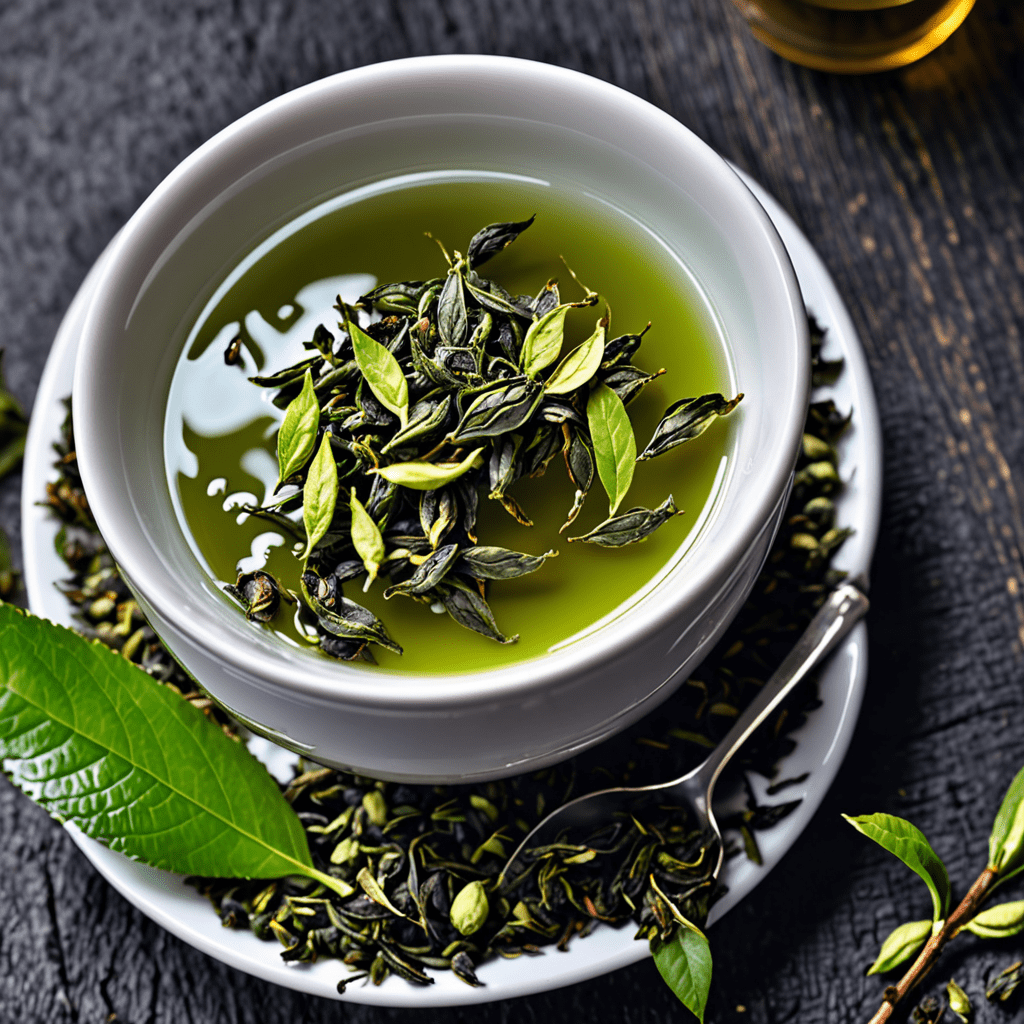
Tea for Digestion: The Key to a Healthy Gut
Introduction
Tea has long been cherished as a soothing beverage that offers numerous health benefits. One such benefit is its positive impact on digestion. Whether you’re dealing with bloating, indigestion, or simply want to maintain a healthy gut, incorporating tea into your daily routine can work wonders. In this article, we will explore the key elements of tea for digestion, provide useful tips, and offer suggestions on how to incorporate tea into your routine for improved digestion.
Key Elements
Element 1: Polyphenols and Antioxidants
Tea, especially green tea, is rich in polyphenols and antioxidants. These compounds play a crucial role in supporting healthy digestion. Polyphenols help reduce inflammation in the gut, promote the growth of beneficial gut bacteria, and aid in the breakdown of food. Antioxidants, on the other hand, protect the digestive system from oxidative stress and damage caused by free radicals.
Element 2: Caffeine and L-theanine
The caffeine content in tea stimulates the release of gastric acids, which aids in digestion. However, unlike coffee, tea contains a moderate amount of caffeine that provides a gentle boost without overwhelming the digestive system. Additionally, tea contains L-theanine, an amino acid that promotes relaxation and reduces stress, which can have a positive impact on digestion.
Element 3: Herbal Infusions for Digestive Health
Certain herbal teas are specifically formulated to support digestive health. These teas often include ingredients like ginger, peppermint, chamomile, and fennel, known for their soothing properties. Ginger, for example, is known to alleviate nausea and support digestion, while peppermint can help relieve bloating and indigestion. Incorporating herbal infusions into your tea repertoire can offer targeted benefits for digestive issues.
Tips for Tea for Digestion
When selecting teas for digestion, consider the following tips:
- Opt for Loose Leaf Teas: Loose leaf teas generally offer higher quality and more potent flavors compared to tea bags. This is because loose leaf teas contain whole leaves, while tea bags often consist of lower-grade, broken leaves.
Explore Herbal Blends: Experiment with different herbal blends that target specific digestive issues. For example, a blend of ginger, lemon, and chamomile can aid in soothing an upset stomach, while a peppermint and fennel blend can help alleviate bloating.
Mindful Brewing: Pay attention to brewing time and temperature. Overbrewing can lead to a bitter taste, while underbrewing may not extract the full flavor and benefits of the tea. Follow brewing instructions or experiment to find the perfect balance.
Enjoy Tea Between Meals: To fully benefit from tea’s digestive properties, it is best to drink it between meals rather than immediately before or after. This allows the tea to promote healthy digestion without interfering with the absorption of nutrients from your meals.
Stay Hydrated: Adequate hydration is crucial for good digestion. While tea can contribute to your daily fluid intake, it’s important to drink plenty of water as well.
Incorporating Tea for Digestion
To make the most of tea for digestion, consider the following ideas:
- Start your day with a cup of green tea: Green tea contains a moderate amount of caffeine, providing a gentle digestive boost without overwhelming your system. It also offers an array of health benefits, making it an excellent choice to kick-start your day.
Explore herbal teas for targeted support: If you experience specific digestive issues like bloating or indigestion, incorporating herbal teas with ingredients like ginger, chamomile, or fennel can provide relief and comfort.
Sip on peppermint tea after meals: Peppermint tea has been traditionally used to aid digestion. Sipping on a warm cup of peppermint tea after meals can help alleviate bloating and promote overall digestive wellness.
Incorporate tea breaks into your routine: Take short breaks during the day to enjoy a cup of tea. Not only does this provide a moment of relaxation, but it also supports healthy digestion, as the act of sipping and enjoying tea encourages mindful eating habits.
FAQ about Tea for Digestion
Q: Can tea help with bloating?
A: Yes, certain teas like peppermint, chamomile, and fennel can help alleviate bloating by relaxing the muscles in the gastrointestinal tract.
Q: Is tea a good alternative to coffee for digestion?
A: Yes, tea contains a moderate amount of caffeine that stimulates digestion without causing the same level of acidity and irritation as coffee.
Q: Are there any teas to avoid for digestion?
A: While tea is generally beneficial for digestion, some people with sensitive stomachs may need to avoid teas that are high in tannins, like black tea, as they can potentially exacerbate digestive issues.
Q: Can tea help with constipation?
A: Certain teas, such as senna tea or dandelion tea, have mild laxative properties which can help relieve constipation when consumed in moderation.
In conclusion, incorporating tea into your daily routine can have a positive impact on digestion. With its rich polyphenols, antioxidants, and soothing properties, tea provides a natural and enjoyable way to support a healthy gut. By following our tips and incorporating tea into your daily rituals, you can experience the numerous benefits of tea for digestion. So why not brew a cup of tea and toast to a happy and healthy digestive system? Cheers!



